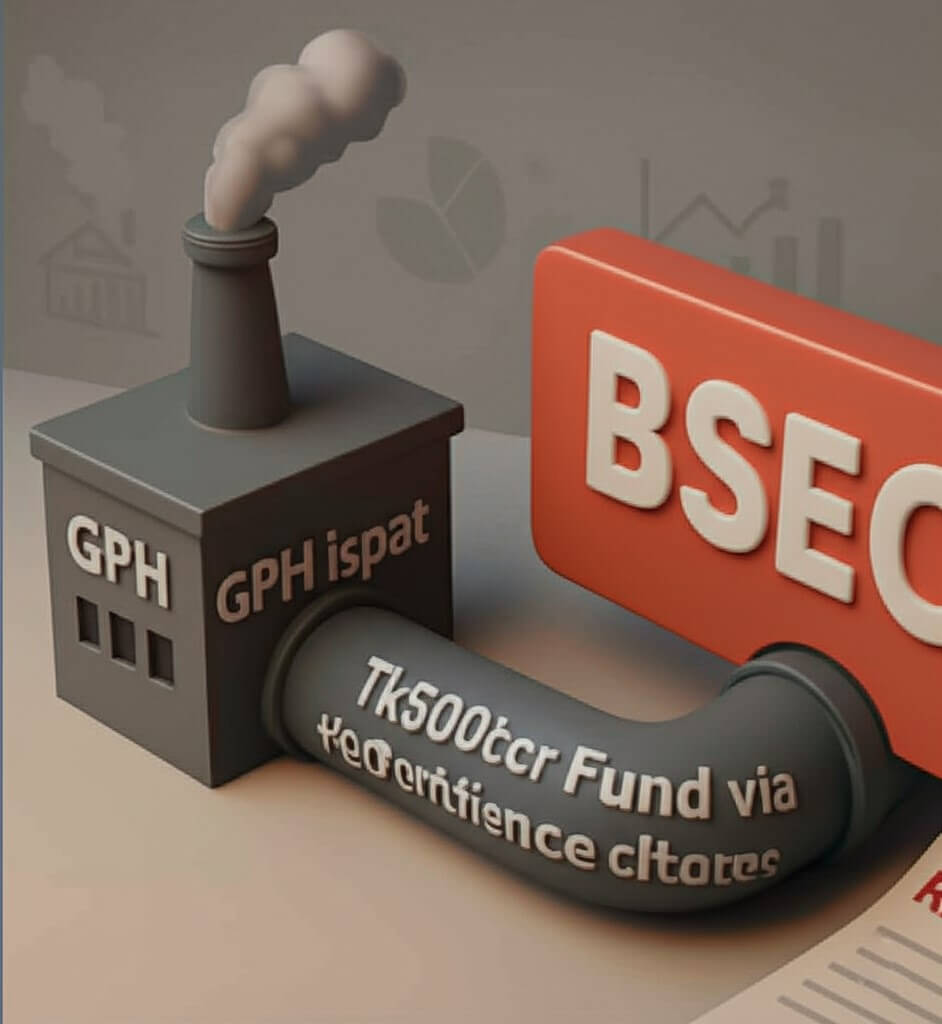GPH Ispat Limited, a publicly listed steel manufacturer in Chattogram, recently saw its proposal to raise Tk500 crore through preference shares turned down by the Bangladesh Securities and Exchange Commission (BSEC). The company had planned to issue redeemable, cumulative, non-convertible, non-participating preference shares last October with the objective of repaying long-term loans. However, in a filing to the Dhaka Stock Exchange, GPH Ispat confirmed that BSEC “is not in a position to accord consent” for the plan. By March 2025, the company had over Tk2,600 crore in long-term debt, which was a rise of 14% from the same time the year before. Meanwhile, revenue recorded a mild rise to Tk4,510 crore, but net profit plunged by 53%, falling to just Tk30.3 crore. In this context, the rejected capital-raising method was seen as a key step towards easing interest burdens and restructuring debt more sustainably. Preference shares offer companies flexibility by blending equity and debt characteristics. They often carry fixed dividends but do not give voting rights, which allows promoters to raise funds without diluting control. GPH Ispat’s proposed issue would have enabled it to service loans while preserving ownership structure. With BSEC’s refusal, the company now needs to explore other options, such as issuing right shares, seeking new loans, or negotiating revised terms with lenders. The rejection also highlights challenges that listed firms face when seeking approval for hybrid instruments. BSEC’s cautious stance likely reflects concerns over repayment capacity, market stability, and the suitability of such securities for individual investors. This situation underlines the regulator’s role in maintaining confidence in the capital market by evaluating company-specific risks beyond mere compliance. Corporate analysts suggest that while GPH Ispat works to reduce debt pressure, it must adopt a more conservative financing plan and enhance transparency. Clear disclosure of capital usage and realistic repayment timelines could improve investor sentiment and win regulatory support for future bids. The broader implication points to a delicate interplay among regulators, companies, and capital markets. Listed firms with sizable debt burdens must balance growth ambitions against financial resilience. Structured instruments like preference shares can be useful, but success depends on strong fundamentals and prudent governance. GPH Ispat’s next moves will be closely watched. Its ability to stabilize profitability, reduce leverage, and present a credible financial plan will determine whether alternative financing routes can succeed. Meanwhile, BSEC’s decision reinforces its oversight mandate. The regulator seeks to ensure that every capital-raising measure aligns with long-term investor interest and preserves stability in Bangladesh’s growing equity market.
BSEC Rejects GPH Ispat’s Tk500 Crore Fundraising Plan via Preference Shares
49


